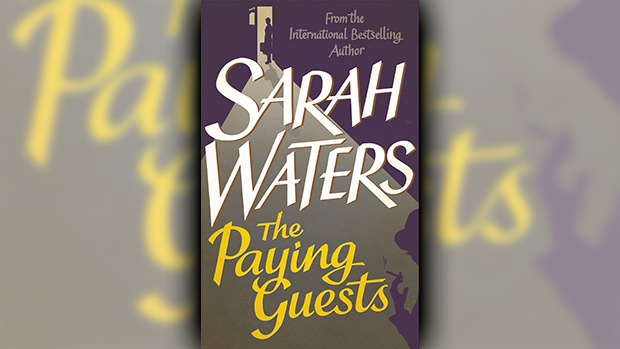Stephanie Jones: Book Review - The Paying Guests by Sarah Waters
- Publish Date
- Friday, 17 October 2014, 12:00AM

- Author
- By Stephanie Jones
The Paying Guests, the sixth novel by acclaimed Welsh writer Sarah Waters, is a book that should be approached cold, which is to say: don’t read reviews of it that may give away key plot points. It’s not too much to tell a willing reader, as the cover blurb does, that it’s a love story that is also a crime story, or that it is set in the intriguing, but oft-overlooked in current fiction, post-Great War period in Britain. Waters herself has placed her previous work in the Victorian era and the 1940s, and has said she identified a gap in her own knowledge of the decades in between and set out to fill it.
For the diminished family at the centre of Waters’ tale, recent events have given rise to hard times. Frances Wray, the young female protagonist, lives alone with her mother in a once proud, now declining, home in south London. Frances’ two brothers were casualties of war, and her father died a natural death shortly before the Armistice, leaving his unwitting survivors saddled with debt from bad speculations.
The women take the only course available to them short of selling the house, and take in “paying guests”, the clumsy euphemism failing to disguise the truth of the arrangement, in Frances’ mind: “money . . . the essence, the shabby heart and kernel of the whole affair.”
Enter a couple of the ‘clerk class’, Lilian and Leonard Barber, who like Frances are in their 20s. Their new landlady makes a shocking sight. While Frances and her mother have grown used to economizing and selling sticks of furniture, Frances sees herself through the vivacious Lilian’s eyes, as a “well-bred woman doing the work of a char”, acknowledges the curling tiles and peeling wallpaper, and feels ashamed. In many moments such as these, Waters artfully evokes the mood and detail of the era, showing how class and propriety were understood and mores protected. It is in the failure of these protections that Frances becomes vulnerable and, perhaps, subject to a kind of deceit.
Though Frances is reticent and prone to withdrawal, she and Lilian gravitate towards each other, even as Frances keeps returning to an old companion she cannot quite relinquish. The pair’s bond forms secretively, in furtive picnics and conversations over forbidden cigarettes, and once Lilian confides that she and Leonard should not have married each other – “the war made things seem more serious than they were” – it is clear that all bets are off and that this story could take a number of turns towards emotional mayhem and practical cataclysm.
The plot steams towards a dramatic climax, and as the curtain is closing, the smallness of the world for women of a certain class, and the universality of parental ambition, are described by a comment to Frances from her mother: “All I ever wanted for you were such ordinary things: a husband, a home, a family of your own. Such ordinary, ordinary things.” Never could the possibility be considered of an entirely different existence for a young woman. With pitch-perfect dialogue and period detail, Waters delivers a melodrama that foreshadows a feminist future.
Take your Radio, Podcasts and Music with you

